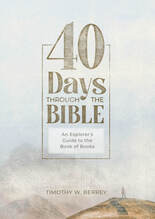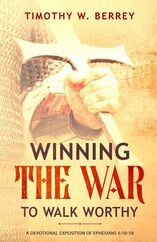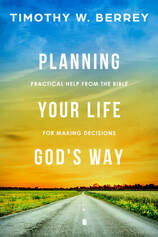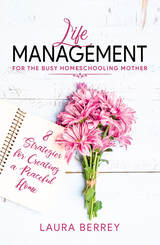|
When making a decision, what are the best ways to let the Word of God shine light on your pathway? The (hopefully fictional) story is told of the man who was seeking God's will for his life. With all good intentions, he decided to open the Bible randomly and follow whatever instruction he found there. Closing his eyes, he allowed his Bible to fall open and placed his finger on the page. When he opened his eyes, he read, "And Judas went out and hanged himself." Eyes bulging with fear, he tried again, and this time his finger landed on the verse, "Go and do thou likewise." Trembling, he tried yet once more. "What thou doest, do thou quickly." This method of randomly opening the Scripture has been employed through the years by many well-meaning Christians. Unfortunately, when making a decision, it is not the best method of allowing the Word of God to guide you. The Bible does have the answers to your questions and can, indeed, aid you in making decisions! What are some correct methods for letting the Word of God shine light on your pathway? 5 ways to consult the scriptures when making decisions1. Start with clear commands of Scripture.
2. Study passages that relate specifically to your decision or circumstance.
3. Reflect on Biblical principles found in Scripture. Perhaps there is no clear command and you can't think of a single passage that relates specifically to your circumstances. Are there any general principles in Scripture that would relate to your dilemma? For example, I Corinthians 10:31 says that whether we eat or drink, or whatever we do, we should do it all to the glory of God. Let this principle guide you by asking yourself questions, such as:
4. Look for Biblical examples of people in life circumstances that are similar to yours.
5. Contemplate principles God is teaching you in your personal devotional time. God is sovereign over your Bible reading. He uses your life circumstances each day to more deeply embed the truths you read that morning into your heart. And He also uses the Scripture that you read to meet the needs of your day. Your personal time in the Word every day is a necessity. This article was adapted from the book Planning Your Life God's Way: Practical Help From the Bible for Making Decisions by Timothy Berrey.
Kim
8/16/2016 04:42:43 pm
Awesome. I am sharing this with my teens. Thank you ! Comments are closed.
|
Tim and LauraTimothy and Laura Berrey are missionaries with Gospel Fellowship Association. They share a passion for missions which has taken them to several countries in Africa, Asia, and Europe. They currently minister in the Philippines. Want articles like this delivered to your inbox?
Categories
All
We send out occasional updates about recently published articles and books. To receive these updates, please subscribe to our newsletter. |






